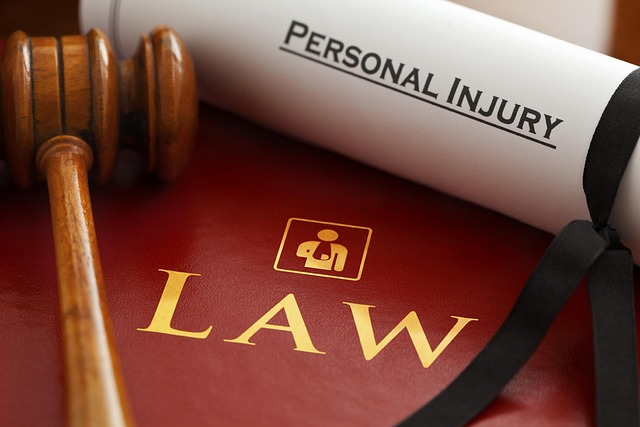How to Find Free Consultation and Pro Bono Attorneys in the United States in 2025
Did you know many civil rights attorneys in the United States offer free consultations or pro bono services? This informative article explains how to access these valuable legal resources and understand eligibility criteria for civil rights legal support in 2025.

What Civil Rights Legal Options Are Available?
Civil rights legal options in the United States encompass a variety of services addressing violations of constitutionally or federally protected rights such as freedom from discrimination, voting rights enforcement, free speech, and protection from police misconduct. Cases may be pursued to seek remedies for racial, gender, disability, or age discrimination or systemic violations impacting communities.
You have multiple paths to begin seeking legal help:
- Private civil rights attorneys: Lawyers specializing in civil rights law who take cases for a fee or, in some cases, on a pro bono basis.
- Legal aid organizations: Non-profit groups offering free or low-cost legal assistance, often focusing on low-income clients and key civil rights matters.
- Pro bono legal programs: Initiatives where attorneys volunteer their time to provide free legal representation.
- State bar associations: Many maintain referral services and directories to help individuals connect with civil rights attorneys offering free or reduced-cost consultations.
Finding Civil Rights Attorneys Who May Offer Free Consultation or Pro Bono Services
Many civil rights attorneys and organizations offer a free initial consultation to evaluate your case without requiring a financial commitment. For those unable to afford legal fees, pro bono legal assistance is a valuable resource provided by attorneys who volunteer their time to represent clients at no cost when possible.
Resources to Locate Civil Rights Attorneys Offering Free or Pro Bono Services
- Legal Aid Societies: These organizations, such as Legal Aid Foundation of Los Angeles or Legal Aid of North Carolina, have expertise in civil rights matters. They link eligible clients with volunteer lawyers or represent them directly. Many legal aid groups prioritize low-income individuals and may set income eligibility requirements based on federal poverty guidelines.
- Executive Office for Immigration Review (EOIR) List of Pro Bono Legal Service Providers: Although mainly focused on immigration-related cases, this list shows an example of a regularly updated directory of attorneys and organizations providing free legal assistance. Comparable directories for civil rights issues may be maintained by various legal associations and local bar groups nationwide.
- Partnerships with Established Law Firms: Large law firms often collaborate with civil rights organizations, such as the Lawyers’ Committee for Civil Rights Under Law, to provide pro bono representation for complex matters like racial discrimination or voting rights violations. These partnerships may offer access to experienced legal professionals at no charge.
- State Bar Associations: Most states have bar associations that provide lawyer referral services. They can help identify civil rights attorneys in your area who provide free consultations or discounted-fee services. Checking your state bar association’s website or contacting their referral service is a useful first step.
- Pro Bono Referral Services: Some legal organizations keep rosters of volunteer civil rights attorneys. These services may screen cases to ensure eligibility and merit for effective use of pro bono resources.
Common Eligibility Criteria for Pro Bono Civil Rights Services
To qualify for free or pro bono legal assistance in civil rights cases, applicants usually must meet specific income limits aligned with federal poverty levels or demonstrate financial hardship. Legal aid organizations and pro bono programs may evaluate:
- Household income: Typically, applicants must be at or below 125-200% of the federal poverty line, though criteria vary by program.
- Nature and urgency of the case: Priority is often given to cases involving potential rights violations affecting vulnerable populations or marginalized groups.
- Merit of the claim: The legal issue should have a reasonable basis under civil rights law.
- Availability of resources: Due to limited attorney availability, organizations generally accept cases where they can offer meaningful assistance.
Types of Civil Rights Cases Handled by Pro Bono Lawyers
Pro bono civil rights attorneys often focus on issues such as:
- Racial, gender, disability, or age discrimination in employment, education, housing, and public services.
- Voting rights and election-related civil liberties.
- Police misconduct and abuse of power impacting constitutional rights.
- Freedom of speech and assembly.
- Systemic civil rights violations and impact litigation affecting broader communities.
Pro bono cases may address individual claims and sometimes aim to establish legal precedents benefiting wider society.
How to Connect with Civil Rights Attorneys and Legal Aid Organizations
Consider these steps when seeking civil rights legal assistance:
- Contact local legal aid organizations: They can provide guidance, conduct intake interviews, and offer referrals.
- Use state bar referral services: These can help find attorneys offering free or initial reduced-fee consultations.
- Inquire about pro bono civil rights programs: Ask if attorneys accept pro bono cases relevant to your legal matter.
- Prepare relevant documentation: Gather evidence supporting your civil rights claim to assist in case screening.
- Understand limitations: Acceptance of cases by volunteer attorneys depends on available resources and case merits; representation is not guaranteed.
The Role of Pro Bono Civil Rights Attorneys in Society
Pro bono civil rights lawyers play a crucial role by offering access to legal representation for individuals who might otherwise lack affordable options. Their work not only supports clients facing discrimination or injustice but also shapes the evolution of civil rights law. For instance, ongoing commitments by major law firms to employment discrimination cases highlight the importance of pro bono efforts.
These volunteer lawyers often dedicate substantial time annually to support civil rights causes, motivated by professional ethics and a commitment to fairness and equality.
Important Notes and Considerations
- Lists of pro bono providers, including those by EOIR and other entities, serve as informational resources and do not constitute endorsements. Attorney availability and case outcomes cannot be assured.
- Civil rights cases involving police misconduct may require attorneys or organizations specializing in this area, which might not appear on general pro bono listings.
- No centralized national directory exists for all civil rights pro bono attorneys; therefore, checking multiple sources is advisable.
Summary
In 2025, individuals seeking civil rights legal assistance in the United States have various resources to find attorneys who may offer free consultations or pro bono services. Starting with legal aid societies, state bar associations, and pro bono referral services is recommended. Many volunteer attorneys handle cases involving discrimination, voting rights, police misconduct, and systemic civil liberties issues. While eligibility requirements based on income and case type typically apply, pro bono legal programs remain an important means to increase access to justice.
Utilizing these resources can help individuals connect with dedicated civil rights attorneys committed to advocating for rights without charging prohibitive fees.
Sources
- Executive Office for Immigration Review, List of Pro Bono Legal Service Providers:
- https://www.justice.gov/eoir/list-pro-bono-legal-service-providers
- Brillant Law Firm, Justice For All: How To Find Pro Bono Civil Rights Lawyers:
- https://brillantlaw.com/civil-rights-pro-bono-lawyers/
Disclaimer: All content, including text, graphics, images and information, contained on or available through this web site is for general information purposes only. The information and materials contained in these pages and the terms, conditions and descriptions that appear, are subject to change without notice.




